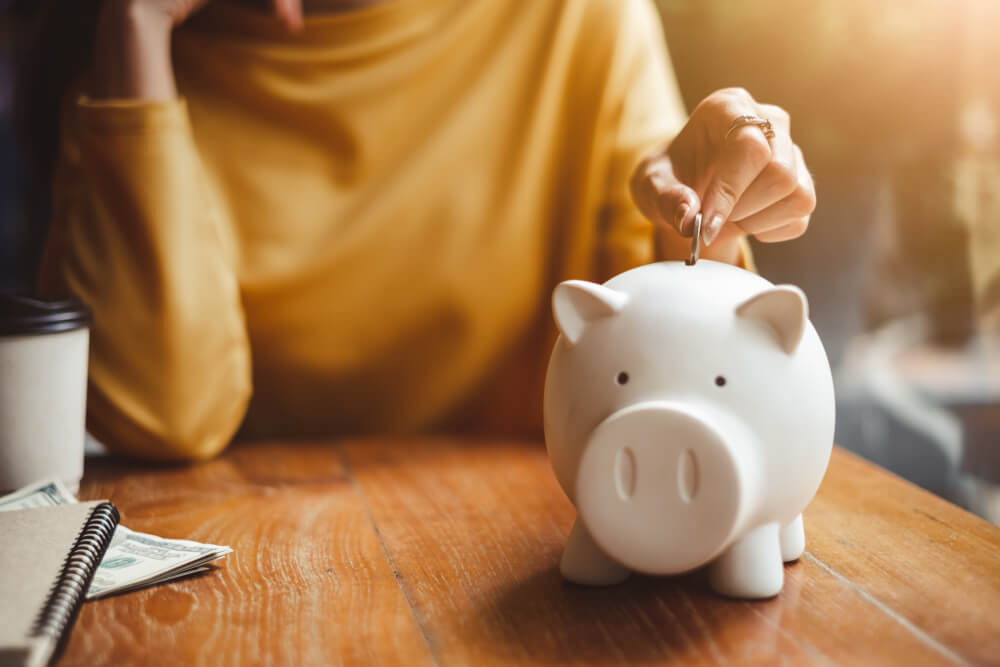
The short answer is yes, you CAN save money while you’re in debt. The long answer is that while it is possible, it will take a lot of effort and time to be able to reach your financial goals. Here’s the lowdown on how you can save money while you’re in debt.
To Save or Pay Off Debt First?
People are often confused whether they should pay off debt first or build their savings. They don’t know which one to prioritise and this is completely understandable. Perhaps they’re aware that the longer they wait their debt will continually grow, or that if something unexpected happens in the future, they won’t have an emergency fund to tap into.
If you can’t decide whether to save or pay creditors, here are a couple of things you may want to consider:
If you have a very low interest rate from your debt, then you may hold off paying it in the meantime. If the additional charges in the next 3 to 6 months aren’t that high, then prioritise saving.
You don’t have emergency funds which is essential in this day and age. The coronavirus pandemic of 2020 was a huge blow to everyone. Many well-established businesses and individuals were robbed of their income and suffered financially. Because of this global experience, you may want to have a mindset of “Anything is possible” and with an emergency fund readily accessible, you won’t be worried about essential or necessary expenses when things become tough.
How to Save Money While Paying Off Debt
In the off chance that you CAN do both, paying off debt and saving up at the same time is not an impossibility. We’ve listed down factors and tips that will help you get through this challenging task:
List Down Your Debt
Take some time and list down all of your debt. From credit card to mortgages, make a comprehensive list of your outstanding debt and their interest rates. For many people, this is a difficult task to do because seeing them all laid out on a piece of paper can sometimes be a hard pill to swallow.
Pay Up
Now that you have a complete list of your debts, here are two methods to help you pay them off as quickly as possible.
Avalanche Method
The avalanche method states that you pay off the debt with the highest interest rate first. Whatever extra money you have, goes into paying debt with high interest rates until you’ve paid them all off. This method helps you save money the most, but will be difficult to start (or even sustain) if you don’t have the right mindset.

Snowball Method
The snowball method prioritises paying off the smallest debt first, regardless of interest rates. For some people, seeing a debt written off their list can be very motivating, which makes the snowball method an ideal way to finish off debts.
The downside to this method is that you won’t be saving as much money as you would want to.
Regardless of which method you use, just make sure that you consistently pay more than the minimum amount, or else you’ll find yourself in a never ending cycle of debt.
Stop (or Lessen) Spending on Luxury Items
This is a given, but a lot of people will find it difficult to accept this. However, if you’re hellbent on achieving your financial goals, reducing or eliminating luxury spending will jumpstart your savings in no time.
The term “luxury items” doesn’t mean a designer bag or piece of jewelry; a luxury item is simply an item you don’t need and can do without. For example, is that grande latte you always get before work really necessary? Would it be difficult if you decide to eat home cooked meals for lunch instead of buying at a local restaurant? These small expenses can put a dent on your attempt at saving especially if you look at it this way:
- Assuming you buy a cup of coffee that costs $5 every morning, you’d be spending $35 a week. In a month, you would have spent $140 and in a year you’d have shelled out $1680 just on coffee. Looking at it this way will help you realise that this amount could have gone to paying off debts AND our savings.
Pay Whenever You Can
We’ve mentioned that paying more than the minimum amount will help decrease the amount of debt you owe. It would also help a great deal if you pay whenever you can. If you have some extra cash, don’t do that victory dance just yet! Instead, use it to pay off bills or deposit it to your savings account.
Consolidate Your Debt
It’s likely that you have a few debts and managing your finances might be tricky when you’re trying to budget everything and allocating this for that. Consolidate your debts into one account so you are only focusing on just a single amount to pay off, versus having to pay many with different due dates.
This tip is advisable if you have several small debts; when you decide to consolidate, negotiate with the bank or creditor regarding interest rates and monthly dues.
Open Savings Accounts with High Interest Rates
One of the best things you can do is to open separate accounts that are dedicated solely for savings. Check out your bank and see available options. Many banks offer accounts that have an interest rate of 2-4% per annum.
A separate account will make it difficult for you to touch it when you have the urge to spend. You will only really see the effect of a high interest rate after a few years, forcing you to leave it alone for the time being.

Experts agree that you should have at least 3 to 6 months worth of living expenses saved up as an emergency fund. For other savings accounts, you can allocate different amounts for other life goals. One account is reserved for retirement, another for a business, etc.
Be Open to Family and Friends About Your Goals
Financial success doesn’t happen overnight. Letting family and friends know about your situation will be extremely helpful. Financial stress has been attributed to different mental health issues as well as other physical ailments.
Talking to people you trust will ease the burden off your shoulders. Sometimes just having someone to talk to is already a big deal. It will also make them aware about pressuring you into joining expensive situations.
What’s the Point of Saving?
You might be asking yourself,
“Why should I even save while I pay off debt? I feel like I’m stressing myself out by doing this.”
Remember that this is all about creating financial habits that you will carry for the rest of your life. The success behind paying off debt as well as saving lies within your mind. Even if you’re just starting with a small amount of money, the fact that you are proactive about your financial goals is something that you should be proud of.
Let’s also not forget that having a cash reserve is better than nothing at all. Anything can happen here on out and it is always better to be prepared than be caught off-guard. People often focus too much on paying off debt and then realise later on that they have nothing saved up when an emergency pops up. When you save while you get rid of debt, even if it’s just a little, you’d still have a great start at building your funds the moment all your debts have been paid off.
Take That First Step Into Financial Freedom
Nobody said that paying off debt and saving money at the same time is easy. However, with discipline and the right mentality, you can achieve financial freedom in no time. For business related debt, JMA Credit Debt Collection is your partner in acquiring outstanding debt from delinquent clients. With over 5 decades of experience under our belt, we discreetly collect debt on your behalf so you won’t have to.





















